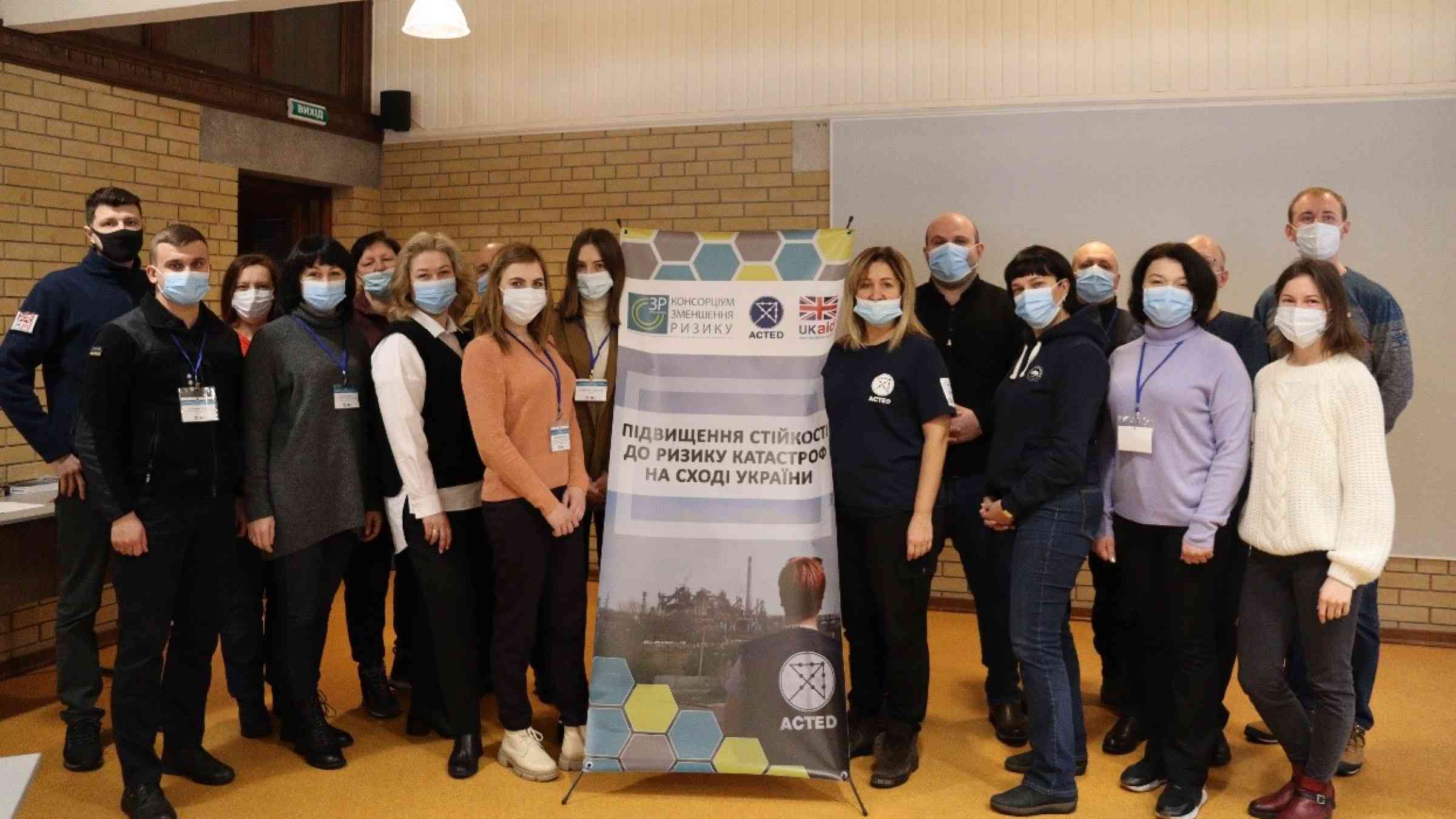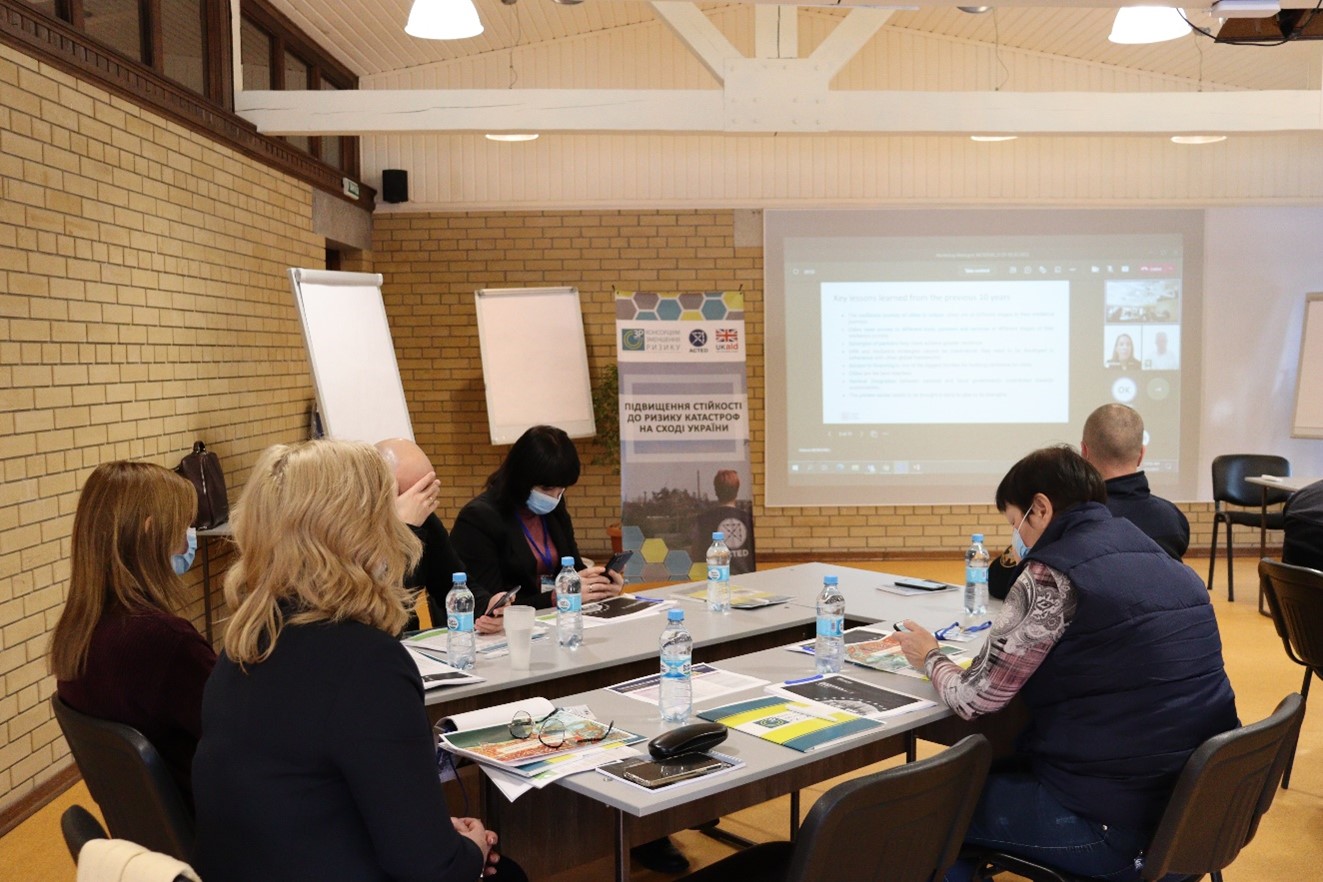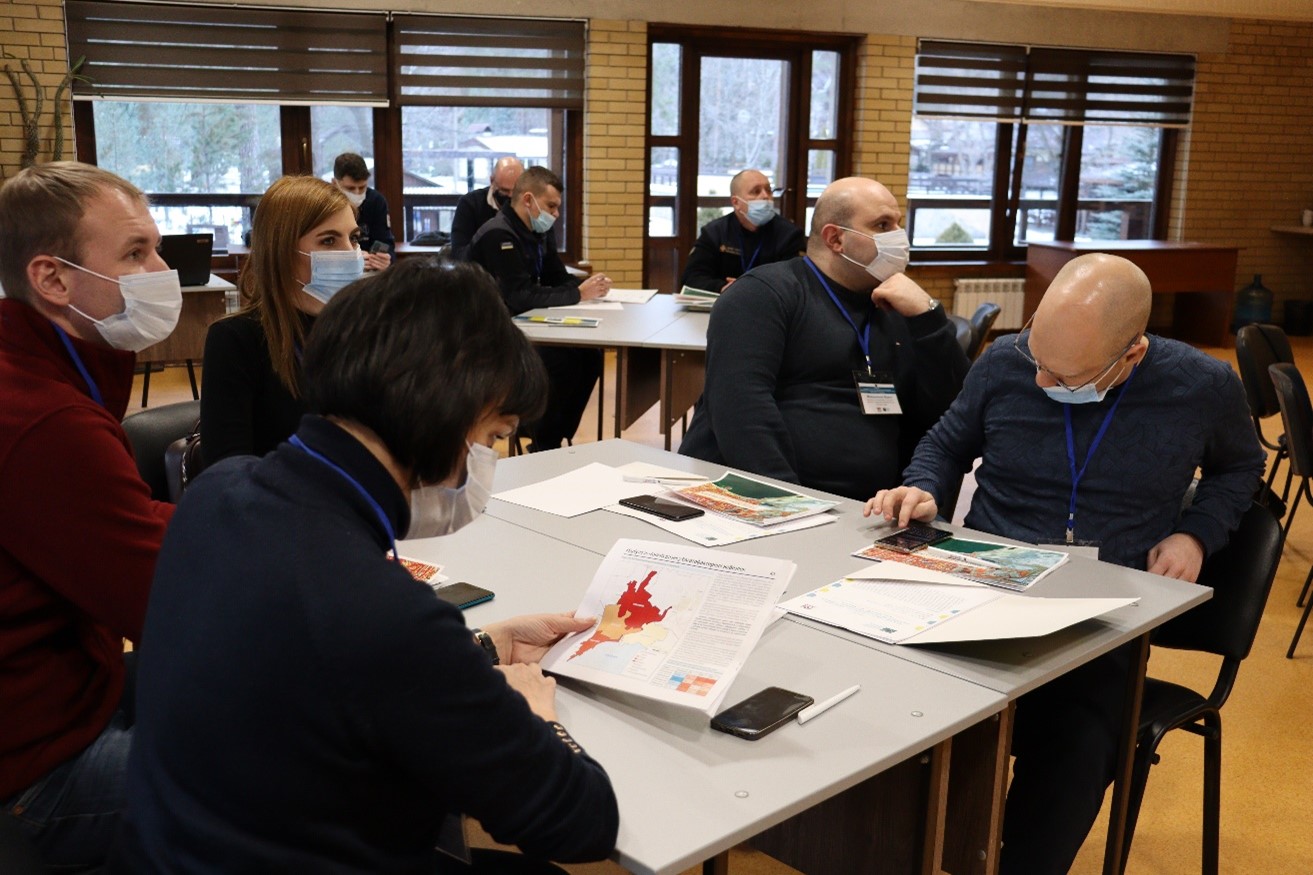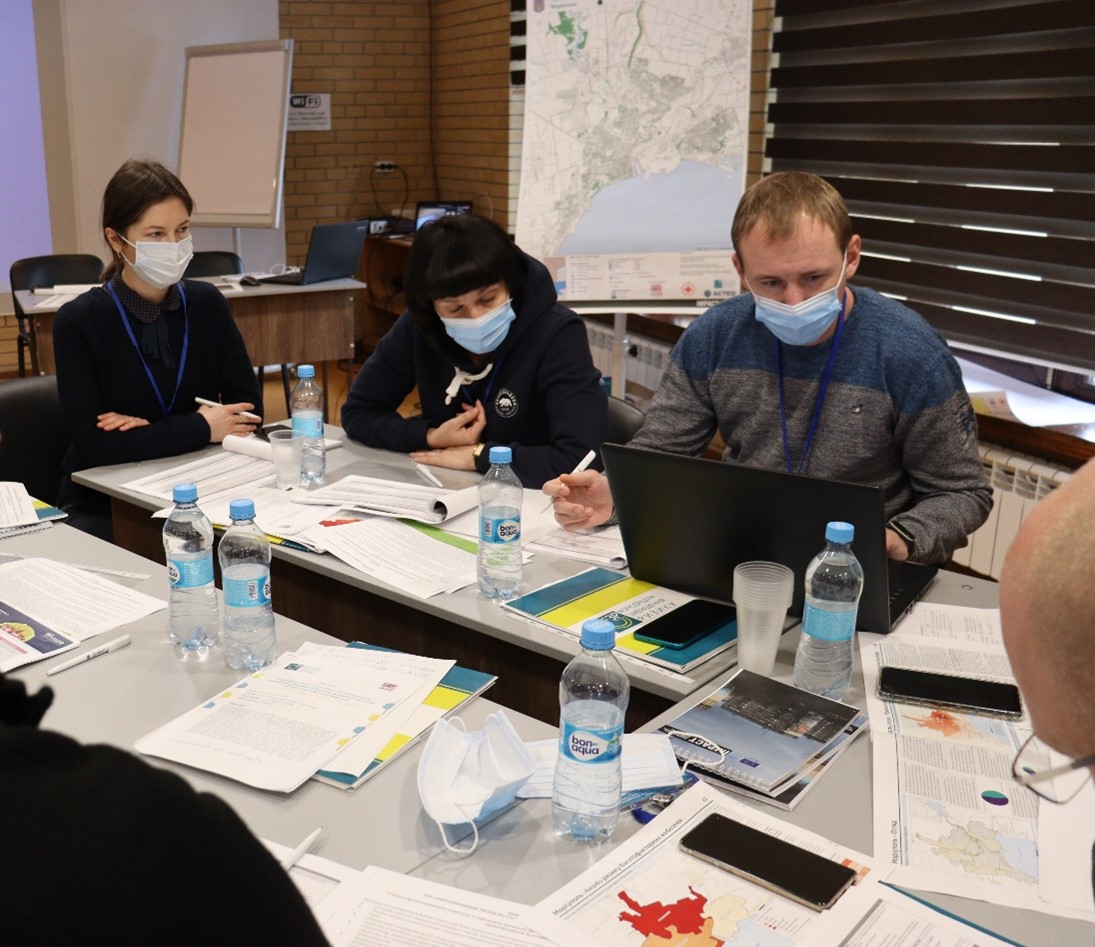Disaster Resilience Scorecard Implemented at Workshop in Ukrainian MCR2030 City Mariupol

Under the guidance of the UNDRR’s Regional Office for Europe and Central Asia, the international non-governmental organizations ACTED and IMPACT Initiatives, as well as 3P Consortium Partners, implemented the Preliminary Disaster Resilience Scorecard Assessment in a workshop with Mariupol city. Taking place from 31 January – 2 February 2022, the event was kindly funded by UK aid from the UK government and was part of the UNDRR’s Making Cities Resilient 2030 (MCR2030) initiative.
Due to its complex and unusual setup, Mariupol was chosen as a Ukrainian pilot city to participate in the MCR2030 initiative. Mariupol is a densely populated industrial harbor and home to several iron processing facilities, making the city prone to both natural and technological hazards.
The workshop brought together representatives from the Mariupol City Council, civil servants from the State Emergency Service of Ukraine from the Donetsk region, representatives from Mariupol State University and non-government associations. Participants were divided into two groups and facilitation took place to achieve maximum engagement and inter-sectoral cooperation.
The workshop participants got acquainted with the Ten Essentials for Making Cities Resilient 2030, a building block for local resilience. Participants identified the city`s disaster resilience gaps, weaknesses as well as areas for improvement, by following 47 urban resilience indicators. Inputs from the two working groups were collected and negotiated among participants to get the final Scorecard results agreed upon by all contributors.
The meeting showed that there is a significant interest in dialogue and mutual knowledge exchange among stakeholders to take appropriate steps to reduce the risk of future disasters in Mariupol. The outcomes of the Preliminary Disaster Resilience Scorecard Assessment will serve as a basis for the development of local resilience action plans in Mariupol and support the implementation of the Sendai Framework for Disaster Risk Reduction 2015-2030. As peer learning is an important component of MCR2030, the workshop also featured a presentation from Dr. Boris Gilca, head of the International Relations department of the city of Chișinău, who shared the city’s experience of using the tool.
The assessment was conducted through the 3P Consortium project “Increasing resilience to disaster risk in eastern Ukraine”. This includes ongoing activities to advance Disaster Risk Management (DRM) in Ukraine through preparedness/response plans, community emergency plans, live simulations, capacity building trainings, national-level coordination events and meetings, as well as recommendations for national stakeholders –all of which demonstrate how DRM is progressing in Ukraine.




